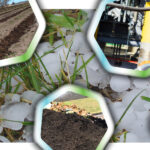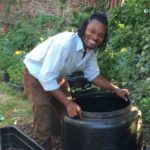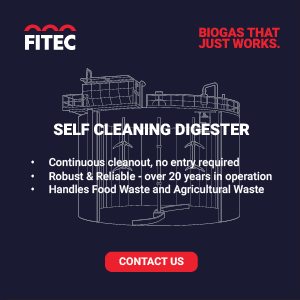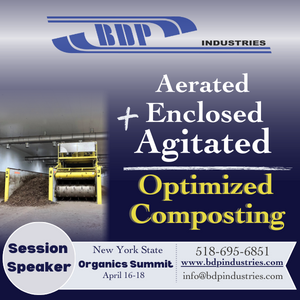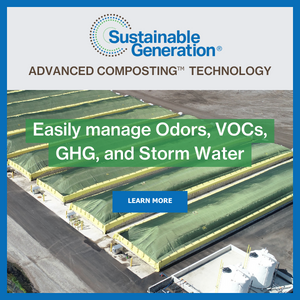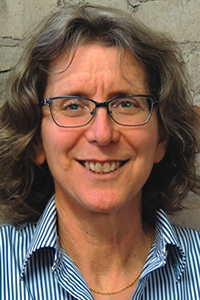
Nora Goldstein
BioCycle February 2019
As final edits were being made to the articles in this issue’s Special Report, “Biogas In Denmark,” BioCycle Contributing Editor Robert Spencer, who participated in the biogas study tour to Denmark last September, called our office, sounding a bit discouraged. That week, the Windham Solid Waste Management District (WSWMD) in Vermont, where Bob is part-time Executive Director, voted to turn down a one-time grant from the state for food waste depackaging equipment, as well as equipment to expand the capacity of the District’s composting facility.
The District’s member towns were reluctant to incur long-term debt due in large part to the reality of not getting commitments for the flow of food waste. This included recent news that a regional supermarket chain that had been utilizing composting facilities in the state, including WSWMD’s, was redirecting its food waste to a digester 5 hours away in Maine. Bob’s frustration is that the new equipment is also an anchor to the District’s planned anaerobic digestion facility, which would assist Vermont in meeting its 2020 mandate to divert all food waste from landfill disposal.
Bob asked if we were aware of any local governments using flow control to require food waste generators in a jurisdiction to divert those organics to a publicly owned and operated processing facility. We brainstormed for a bit, and then Bob asked whether I thought Denmark’s national biogas strategy is too “pie in the sky” for the U.S., especially given the setback in the District’s strategy. We decided that telling Denmark’s biogas story is very important. While not all elements are applicable on this side of the Atlantic, the essential components that have driven infrastructure development need to be examined.
In the opening article, “Deep Dive Into Danish Biogas” (Bob is a coauthor), the subtitle reads: “The state of biogas in Denmark has been driven by economies of scale, standardized designs, buy-in from farmers and, not least, strong, bipartisan policy support.” Let’s start with economies of scale. Most new plants in Denmark are large-scale, with processing capacity of 300,000 to 500,000 tons/year, and capital costs ranging between $25 million to $30 million. They process liquid and solid manure, and food waste and other high strength organics from the municipal, commercial and manufacturing sectors. A leading project developer is Nature Energy, a natural gas utility that made a commitment a few years ago to produce and utilize renewable natural gas (RNG). Nature Energy recently bought Xergi, a biogas system designer and builder, which helps facilitate standardized project designs.
Livestock farmers benefit from these AD projects to manage the manure produced by their operations, and to have fertilizer (digestate) returned to them. Economies of scale also come in the form of co-locating the digesters next to food waste preprocessing installations, and adjacent to injection points into the national natural gas grid.
Probably the most essential component of Denmark’s strategy — something sorely lacking on this side of the Atlantic — is bipartisan policy support. “Biogas became a political priority as a means to control agricultural waste management and provide a flexible renewable energy product,” notes “Deep Dive Into Danish Biogas.” Favorable feed-in-tariffs were established for electricity and RNG, more money was allocated to investment grants, and the goal of 50 percent manure into biogas by 2020 was established. Then, in 2018, the Danish government signed a new Energy Agreement to be fossil fuel independent by 2050, along with achieving net zero carbon dioxide emissions.
So is this pie-in-the-sky? Can this become a reality in the U.S.? Or is the best question to ask: Do we have a choice? Excess nutrients are suffocating our lakes, streams, rivers and bays. Carbon emissions are way too high. Our soils are suffering from lack of organic matter. In short, there is a way, as the article, “Something Is Very Right In Denmark,” discusses. So now we need the essential, and missing component — a will.


